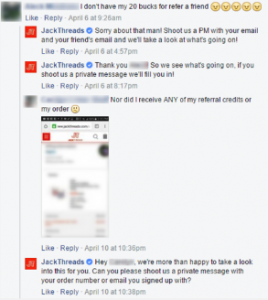“There has never been a better time to be an entrepreneur….” I wrote these words in a previous article here on the Huffington Post and backed them up with several reasons for optimism, including today’s relatively low cost for an Internet based startup. Powerful technologies and resources exist and are readily available with just a few clicks. However, two Gallop polls in the new year suggest that the nation’s current pessimistic mood about the economy seems to be overshadowing my reasons for optimism about opportunities I believe are available for the taking. An early February poll showed that Americans consider joblessness to be the number one problem we face. About one in four perceive unemployment as a bigger problem than inaction by Congress, climate change, the budget deficit or issues with health care. Last month’s poll follows on the heels of a January Gallop poll, which shows that Americans’ confidence in the economy has been slipping.
Despite these prevailing sentiments, I remain convinced that our country has a wealth of business opportunities waiting to be exploited. The key is for established entrepreneurs to help would-be entrepreneurs overcome their fear factor and connect them with the best available tools, resources and mentors to help them succeed. The unemployed and under-employed need to be coaxed off the sidelines to create their own jobs. Understandably, this is not an easy task when someone is in the midst of a financial crisis. Anxiety may be keeping them from making a bold move toward a brighter future.
I am just one individual, and at age 90, I can only do so much. I’m certainly not selling anything to earn income; I am simply trying to help the next generation of entrepreneurs succeed with accessible materials, whether they’re just beginning their journey or they’re farther along the path toward prosperity and just need a little push to reach the next level and thereby create more jobs.
We need to foster entrepreneurship now more than ever because, from an historical standpoint, we actually have a shortage of entrepreneurs.
Recently, I conducted a brief online search on the rate of new business formation. I wanted to gauge the rate of recovery in the U. S. after the depth of the Great Recession. Unsurprisingly, my search confirmed what I had already anticipated: We’re slowly improving, but still not back to pre-crisis levels, though lately, even our slow progress has been stalled by severe winter weather in many parts of the country. What I hadn’t anticipated, however, was that my online search would yield so many articles and studies showing a steady decline in startups over the last 25 years despite all the technological advances we’ve made.
One such article was a transcript of an NPR radio interview from October 31, 2013. John Haltiwanger, an economist at the University of Maryland, studies young, high-growth companies, and during the interview he cited some worrisome statistics. Haltiwanger annually compares the number of new firms created every year as a percentage of overall firms. “It used to be the case, in any given year we were up in the 12, 13 percent range. Now we’re down in the 7 or 8 percent range… We’re talking about hundreds of thousands of fewer startups today than we used to see,” he said. Similarly, a recent Washington Post article cited a decade long decline in high-tech startups, even going so far as to call them “an endangered species.”
Since new businesses are the engine of job creation, this is a very disturbing trend at a time when unemployment and under-employment levels are so high. New entrepreneurs and enterprises are vital to lifting up our economy, yet several writers I encountered worry that as a nation we are becoming more risk averse. Apparently, the “fear factor” when it comes to starting a business has been gaining strength, not receding. For several reasons, I think it is incumbent on established entrepreneurs to help ratchet down the anxiety. All business ventures involve some risks, but these can be managed with targeted research, careful planning and close attention to details and execution.
For would-be entrepreneurs, a good place to start is Suzanne Mulvehill’s article, “31 Tips for Conquering Startup Fears.” I particularly like tip number 28: “Overcome the ‘not good enough’ syndrome.” As Mulvehill advises, “The next time you feel compelled to turn down an opportunity, figure out what would be necessary for you to accept it.”
Another good way to start letting go of fear is with learning more about how entrepreneurs who’ve “made it” actually got started. Most, you’ll find, had meager beginnings, as I did. In fact, my biggest asset in 1946 wasn’t money. It was my lack of fear, since I had literally been shot at so many times during the war. I just figured, “What’s the worst that can happen?” A step for many to gain the courage needed is to spend time identifying what it is that they’re passionate about pursuing. If they can tap into personal enthusiasm for an enterprising idea, I promise you, they will find the energy needed to get off the ground through self-motivation.
For many years, I’ve shared business insights with college students and entrepreneurial startup teams. I always encourage them to just go out there and get going. When egos are removed from the mix and efforts are tracked for later review and refinement, truly successful entrepreneurs evolve on their journeys and remain critical in their evaluations of situations that affect their outcomes. Critical thinking is the key, which is something I have tried to impress on all those I encounter who want to get ahead.
A lot is at stake here, and not just for would-be entrepreneurs. Our nation’s dynamic economy relies on constant inflows of creativity and energy. Without this pace of healthy change, the U.S. will drift downward, eventually coming to rest on a seabed of mediocrity. The good news is that the Millennial Generation is about to take the reins of our economy. This is a large and talented cohort that embraces the entrepreneurial lifestyle, and I am confident that most can find their niche in the marketplace.
However, I would offer one caveat for every new entrepreneur: even more so than in the past, good timing is critical and preparedness is key.
The general consensus among today’s economists is that business cycles are getting shorter. This means the windows of opportunity in business open and close more frequently. To be successful, entrepreneurs must find a need, keep a close eye on market trends, stay nimble, use available tools where possible, and have the firm resolve to jump in when the time is right.
Jack Nadel is the author of the award-winning book, “The Evolution of an Entrepreneur: Featuring 50 of My Best Tips for Surviving and Thriving in Business” – winner of five Global Ebook Awards including three Gold Awards for BEST in Business, Leadership and Careers/Employment – part of the popular Ultimate Crash Course for Entrepreneurs set, available on-demand online (www.JackNadel.com). He is the founder and chairman emeritus of Jack Nadel International, a global leader in the specialty advertising and marketing industry. Jack, founder of more than a dozen companies worldwide, is also the author of other books, including, “There’s No Business Like Your Bu$iness, How to Succeed in Business Without Lying, Cheating or Stealing,” “Cracking the Global Market,” and “My Enemy, My Friend.”
E-mail: Jack(at)JackNadel(dot)com.
Follow Jack Nadel on Twitter: www.twitter.com/JackNadel
Read more on Huffington Post
(767)







